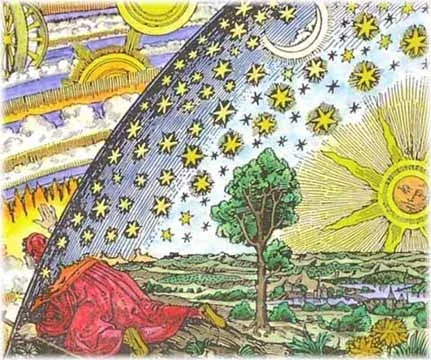Cult and Occulture defined
the seeker crosses into the beyond or supernatual
Cult and occulture derive their meaning from the same root: the Latin cultus or to care for.
Cult tends to mean devotion, sacrifice, or ritual directed toward a person, idea, object, or mission. Cult can also refer to methods of healing in the archaic sense as employed by shamans. In popular usage outside of academia, cult tends to refer to insular, fanatical, weird, or scary groups. In academia, cult tends to be a neutral indicator of specialized and ritualized devotional behavior.
Occulture refers to that aspect of culture that finds value in the pursuit of the mysterious, hidden knowledge, the beyond, speculative science, extra-sensory perception, divination, manifestation, mental healing, contact with angels, gods, alien beings or spirits, and hunches that pervade the gambling cultures.
Occultic behavior can range from an innocuous reading by a Tarot card reader to serious study with a scholar who specializes in Kabbalah. In most cases, spiritual pursuits that may seem odd to outsiders, pose no serious or obvious harm to the seeker. Problems can arise when the student or seeker overvalues the occult experiences, becomes obsessed, or appears to have succumbed to manipulation and control by an unscrupulous teacher or group.
Occulture resides in System 1 of Dual Process Theory (DPT) in which humans access intuition, gnosis, divine revelation, inspiration, or the ability to directly grok what appears to be truth. The use and abuse of entheogens enhances what appears to be transcendent human perceptions using System 1. System 2 in DPT tends to be more reasonable, slow to decide, willing to stop and think while checking for error and misrepresentation, and willing to ask, “Why and how might I be wrong?”
The obvious problems of deception, self-delusion, and governance through autocratic rule arise readily within the occulture without enforced ethical and reasonable standards.
My goal with clients is to evaluate whether cult pursuits fall into a basic assumption state that resists questioning or criticism from outside the assumed truths. The cult or leader in question may encourage study and chocie, but only to support basic assumptions. One basic assumption might be that the seeker has to believe or experience the leader as enlightened or as a prophet of God. The basic assumption state readily accommodates what I call an autocratic self-sealing social system or badly run cult or basic assumption group.
Philosophically, I try to break down cult behavior according to its use of knowledge, conduct, and governance. Newer religions and sects tend to be poorly governed as a result of the grandiose ideas or knowledge claims by the leader whose conduct might fail rigorous ethical examination. Older religions and groups can lapse into unreasonable autocratic behaviors as well.

